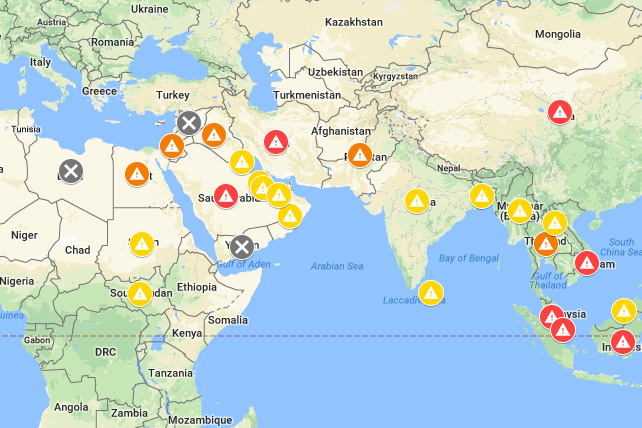At least 33 countries retain the death penalty for drug offences, despite the practice being illegal under international law.
A new report, The Death Penalty for Drug Offences: Global Overview 2017 published by Harm Reduction International (HRI), has shed light on the continued prevalence of this practice.
Executing people for drug offences is a violation of international law. According to Article 6.2 of the International Covenant on Civil and Political Rights:
"In countries which have not abolished the death penalty, sentence of death may be imposed only for the most serious crimes"
In 2017, following the execution of a man found in possession of heroin in Singapore, the UN Office of the High Commissioner for Human Rights stated that “'the most serious crimes' … has been interpreted to mean only crimes involving intentional killing”. Nonetheless, among the 33 countries which retain the draconian punishment, at least five have executed people for drug offences since 2015: China, Iran, Saudi Arabia, Indonesia, and Singapore.
While governments often frame the execution of people for drug offences as a necessary measure to combat large-scale drug trafficking, the people killed by the state are rarely high-ranking members of trafficking groups. HRI’s human rights analyst, Gen Sander, who authored the report, writes that "the majority of those sentenced to death and executed are low level couriers who often experience overlapping and intersecting forms of vulnerability, discrimination and exclusion and who are often subjected to forced confessions and unfair trials".
The harsh consequences that marginalised and vulnerable people face for drug offences has become particularly evident in the Philippines in recent years, despite the death penalty being illegal in that country. Following the election of President Rodrigo Duterte in 2016, an estimated 12,000 people have been killed across the country under the guise of his “war on drugs”. As HRI's report describes, Duterte's brutal mass slaughter of people for alleged drug offences has reportedly led to "the largest number of civilian deaths in south-east Asia since the Khmer Rouge genocide and Vietnam war in the 1970s".
TalkingDrugs have mapped out some of the findings of HRI’s report below. For a detailed understanding of how the death penalty is implemented for drug offences around the world, read the full report: The Death Penalty for Drug Offences: Global Overview 2017.



